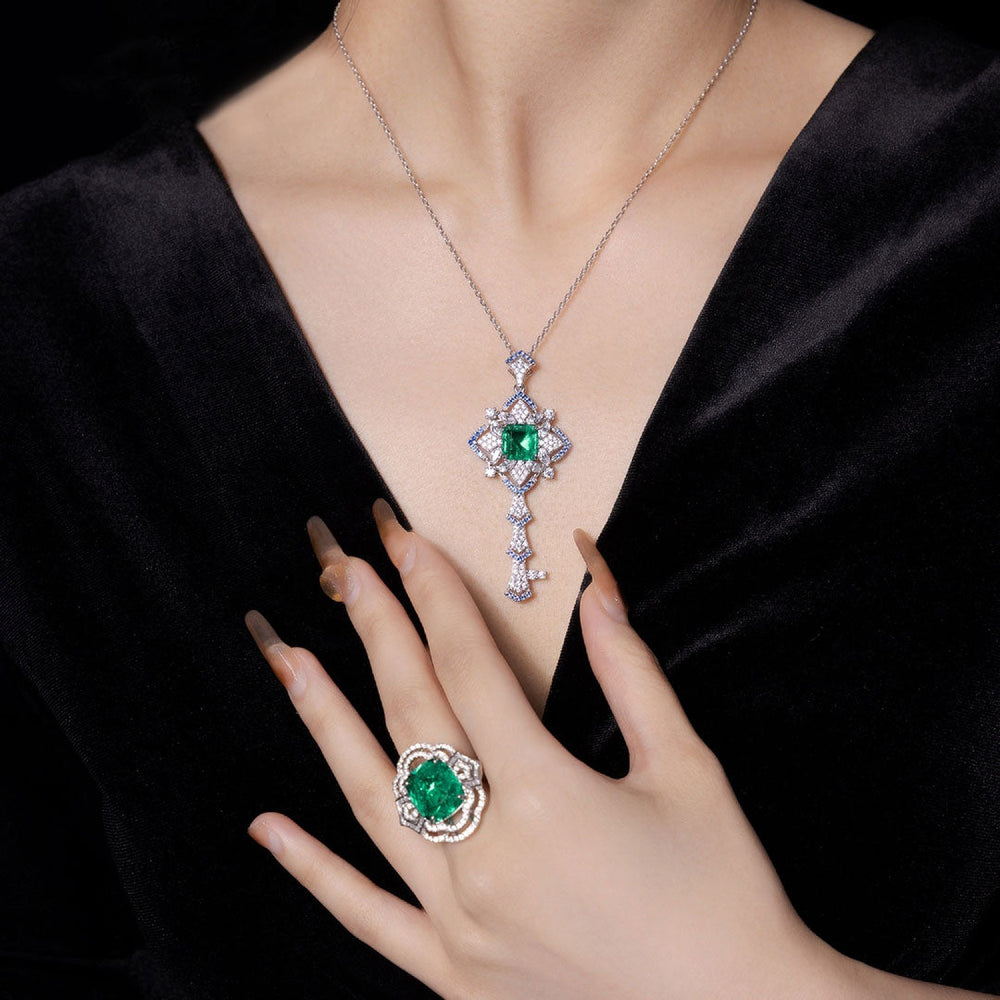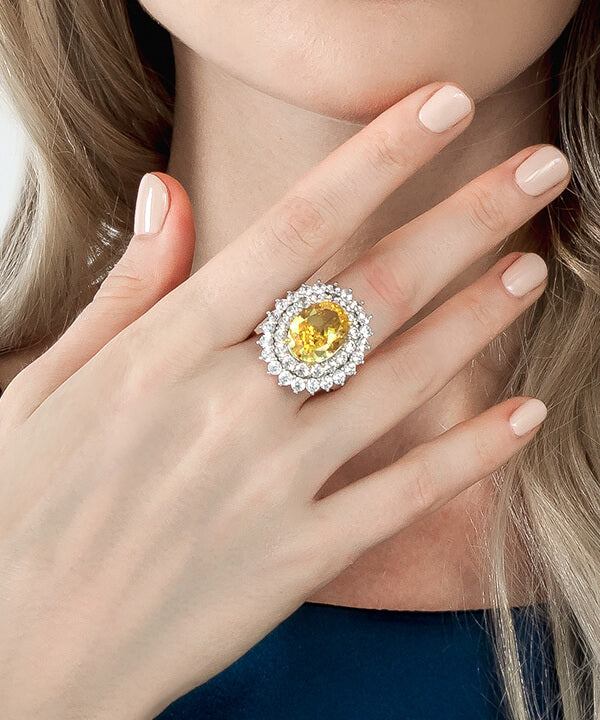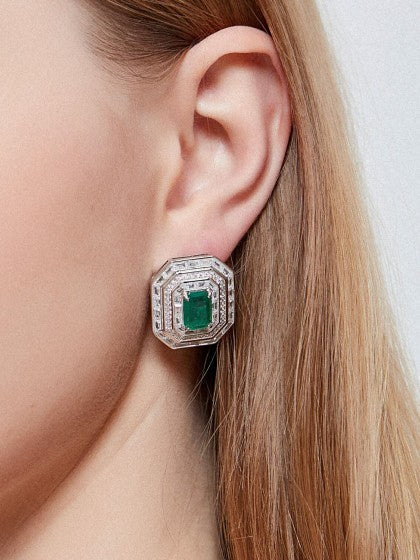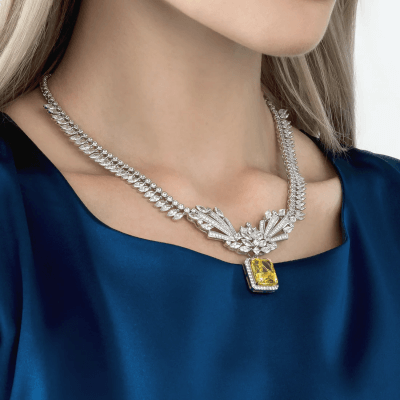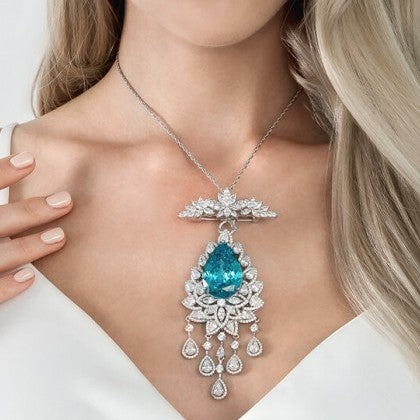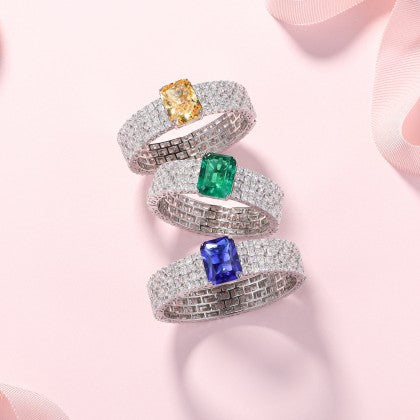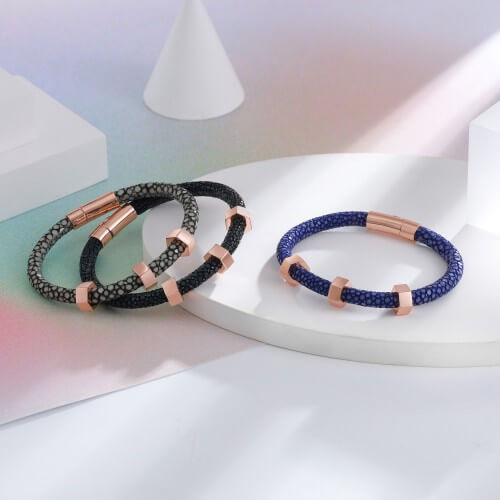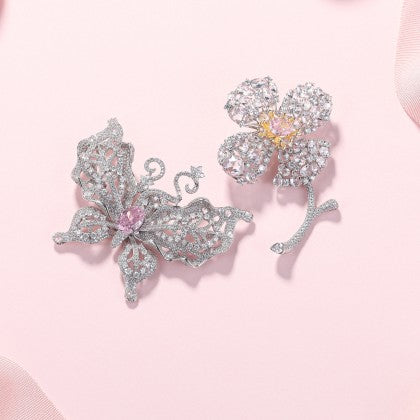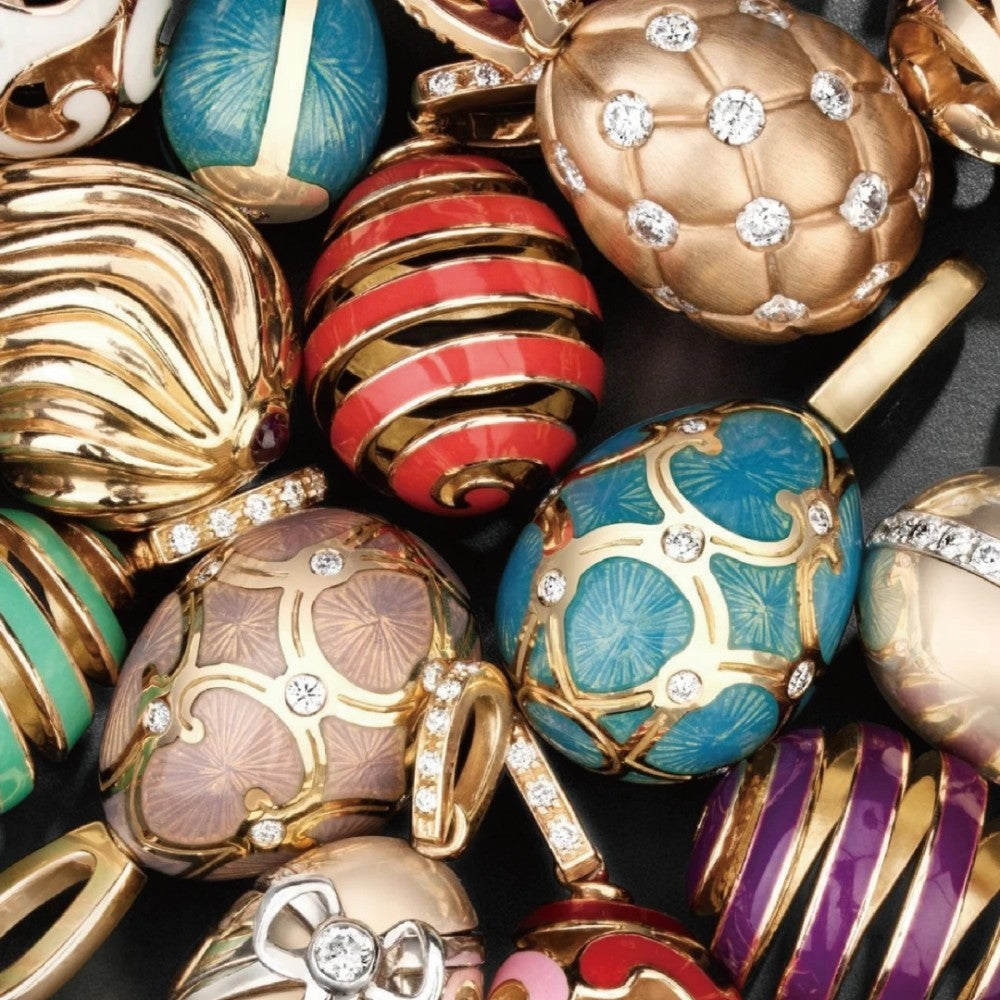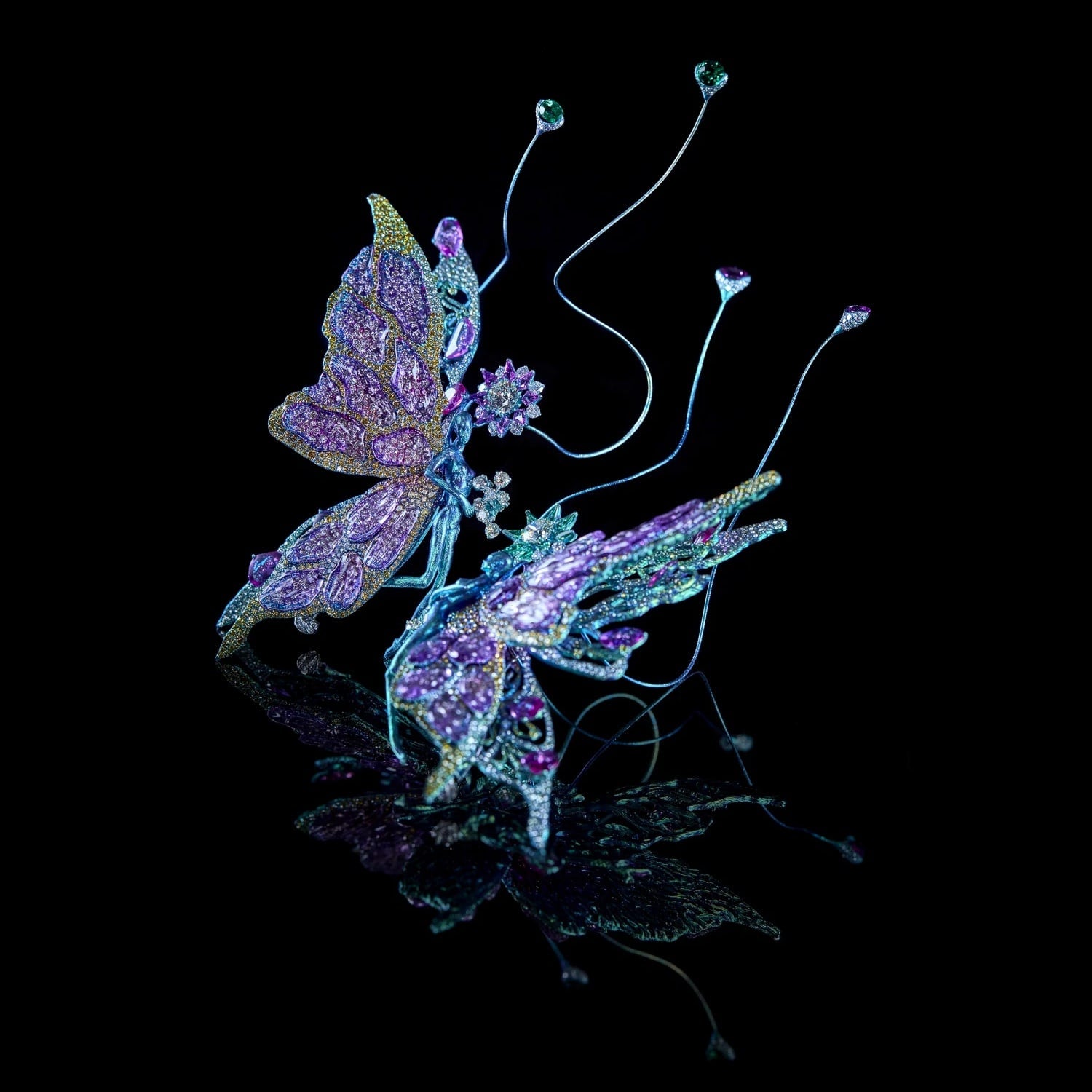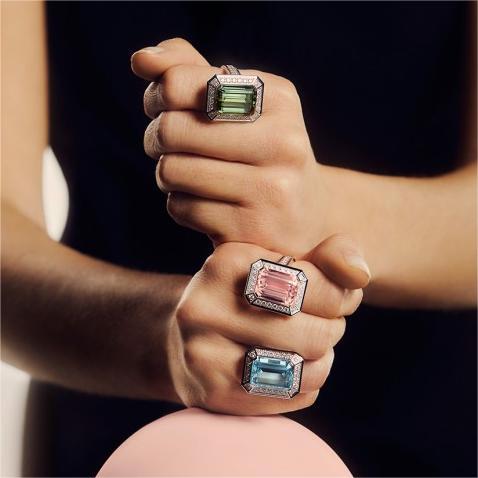The jewelry that people are familiar with is often rings, necklaces, and earrings, but in the jewelry industry, there is a style that is unique-extremely luxurious, exquisite and exquisite, and one piece is priceless, egg.
Easter eggs represent a special festival of the Orthodox Church, but the eggs made of jewelry are the witness of the love between the Russian Emperor Alexander III and the last Empress Dowager Maria.
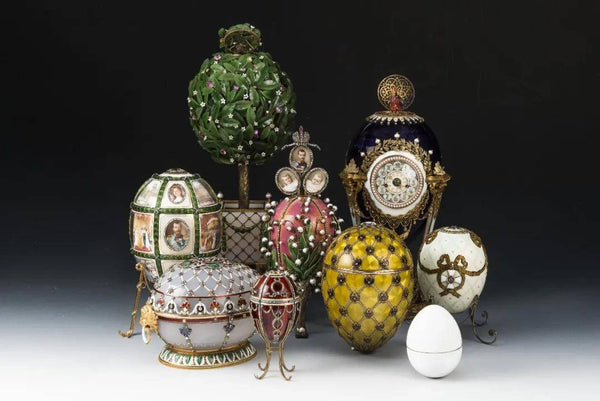
Faberge eggs symbolizing love
In 1885, Alexander III had been on the throne for 20 years. In order to thank Maria who silently accompanied him, Alexander III decided to give Maria a special gift.
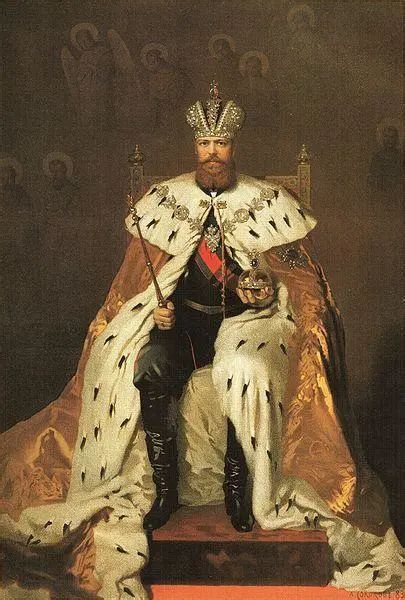
Alexander III
As the queen of Russia, Maria has countless treasures, such as egg-sized sapphires and diamonds, what other gift can be both gorgeous and innovative?
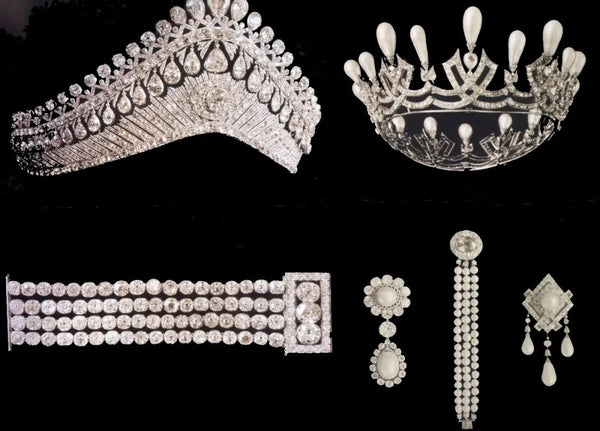
Maria Collection
At that time, it was Easter in Russia, and the Easter egg was the most typical symbol of Easter. For this reason, Alexander III specially commissioned the jeweler Faberge to make an Easter egg.
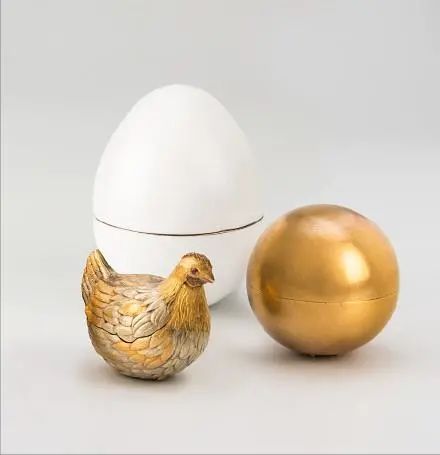
Faberge eggs
This easter egg is inspired by Maria's favorite childhood toy. Although it looks plain on the outside, there is a mystery hidden inside.
A golden hen with a diamond crown and a ruby egg in its belly. It is said that the Tsar also participated in the design of this egg.
After Maria received the gift, she couldn't put it down. In order to win Maria's favor, Alexander III decided to give Maria an Easter egg every year in the future.
It is easy to give gifts for a year, but it is not easy to insist on giving gifts every year and have to change the pattern.
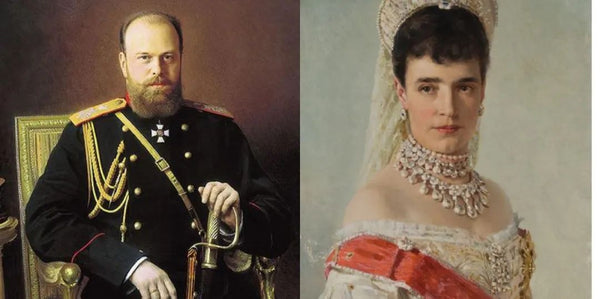
Alexander III and Maria
But Alexander III persisted. In the following ten years, every Easter, Maria will receive an Easter egg. These eggs not only have different appearances, but the small traps inside often make Maria happy all day.

Easter eggs in different styles
The egg below, called the Danish Royal Palace, was a gift from Alexander III to Maria in 1890.
The appearance of the easter egg is girly pink, the surface is inlaid with six vertical lines and three horizontal lines made of diamonds, and a sapphire is inlaid on the top.
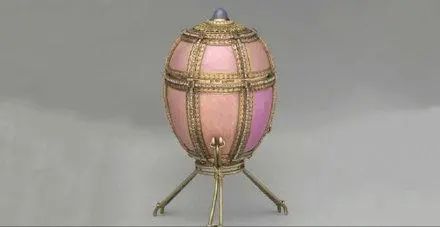
Danish Royal Palace Easter Eggs
Open the eggs, and inside are 10 watercolor miniature screens, all of which are Danish landscapes, which are made to ease Maria's homesickness.
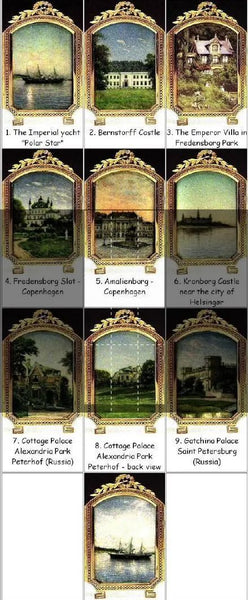
watercolor painting
The Sea of Azov easter egg was made in 1891 and is inlaid with platinum, gold, and diamonds. Inside the eggshell is a miniature model of the warship "Azov" to celebrate Zazevic in 1890. . Nicholas and Grand Duke George's voyage to the Far East.
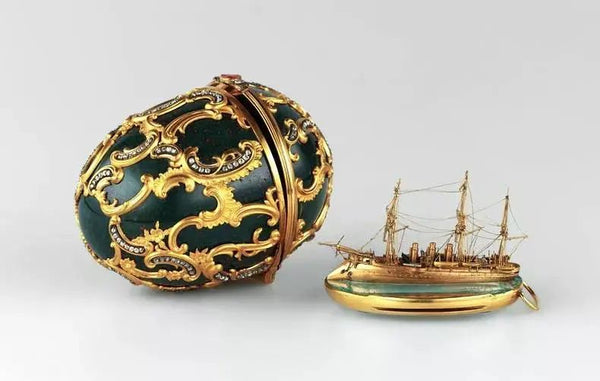
Sea of Azov eggs
The design of the diamond mesh easter egg below is even more exquisite. Inside the egg is a miniature mechanical elephant inlaid with gems, which can be opened with a key, and the workmanship is very exquisite.
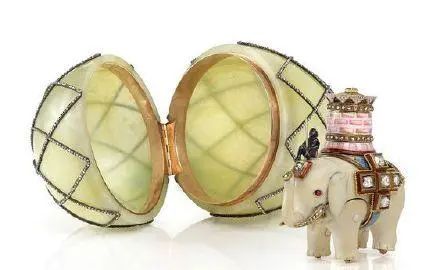
Diamond Grid Easter Egg
Compared with the easter egg above, the appearance of the easter egg below is quite gorgeous. It was a gift from Alexander III to Maria in 1893 to pray for his son George Alexandrovich.
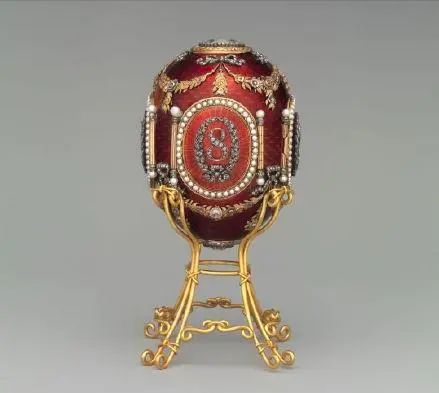
caucasian eggs
The surface of the egg is inlaid with red enamel, diamonds, and pearls. There are 4 small oval doors on the egg, and miniature watercolor paintings are drawn inside the door.
There is also a mechanism hidden on the top of the egg, and when it is opened, there is a portrait of George Alexandrovich wearing a navy costume.
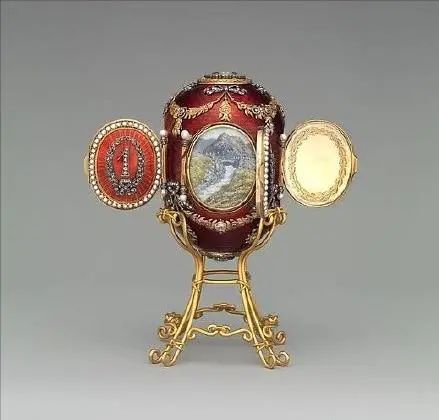
caucasian eggs
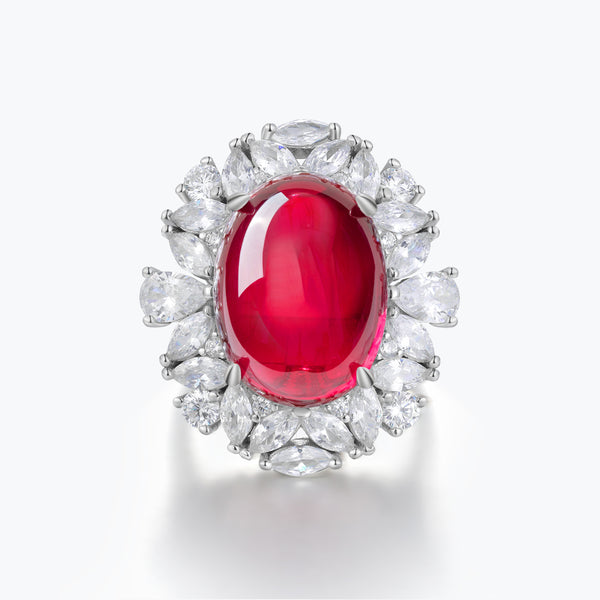
Dissoo® Oval Ruby Sterling Silver Cocktail Ring with Antique-style Flower-shaped Diamond Halo
In 1894, the gift Maria received was an easter egg called the Tsar Renaissance.
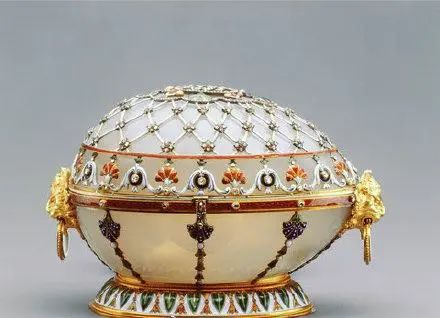
Tsarist Renaissance Egg
But such a beautiful day is completely over this year.
In October 1888, Alexander III's family had a sudden accident while taking the royal train, killing 23 people and injuring 19 people. psychological shadow.

accidental train
Since then, Alexander III has been depressed and became ill. On October 20, 1894, Alexander III passed away.
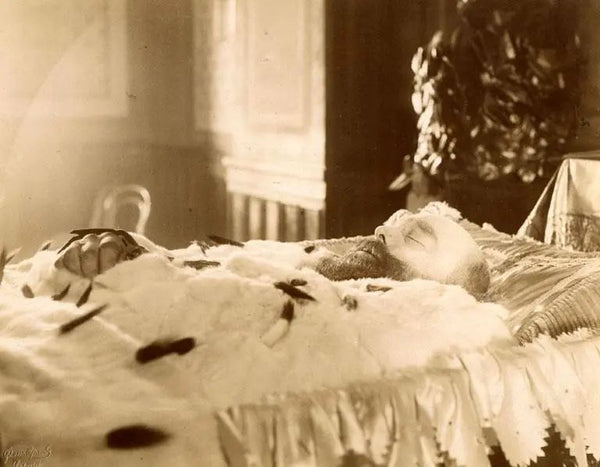
Alexander III dies
Nicholas II's ascension to the throne is full of memories
On November 1, 1894, the eldest son Nicholas II ascended the throne, and Maria became the Empress Dowager of Russia.
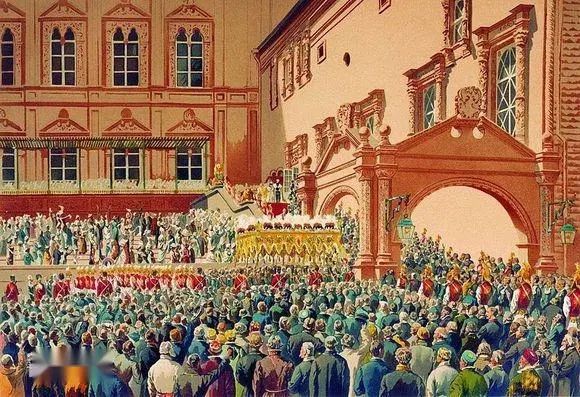
Enthronement Ceremony of Nicholas II
The departure of Alexander III dealt a great blow to Maria. She was immersed in grief all day long and washed her face with tears.
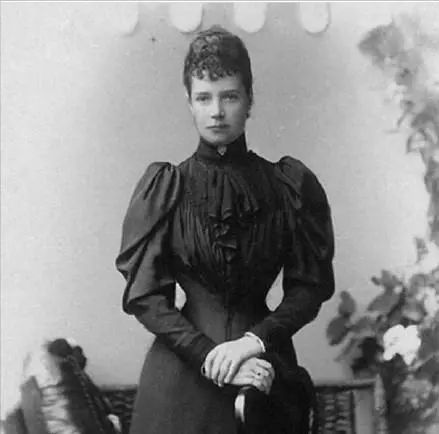
Maria
In order to help his mother get out of grief as soon as possible, Nicholas II continued the tradition of his father, Alexander III, and gave his mother a Faberge egg every Easter.
Compared with the love and fun Easter eggs sent by Alexander III, the Easter eggs sent by Nicholas II are full of memories.

Made in 1896, this Egg of the Tsar's Twelve Arms is made of translucent blue enamel.
The diamond divides the egg into 12 areas, the upper part is embedded with the royal coat of arms of Alexander III, and the lower part is embedded with the royal coat of arms of Maria, which is the best gift for Mary to mourn her deceased husband.
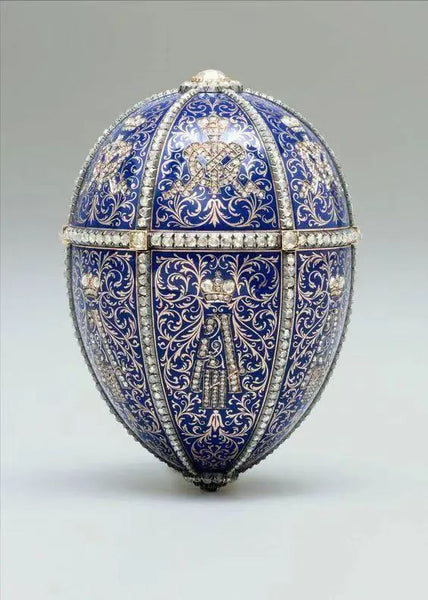
Tsarist Twelve Eggs
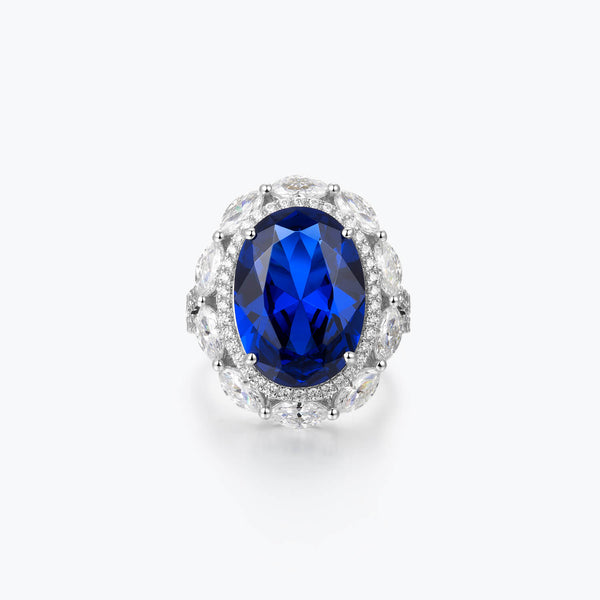
Dissoo® Oval Cut Royal Blue Ring with Flower Cluster
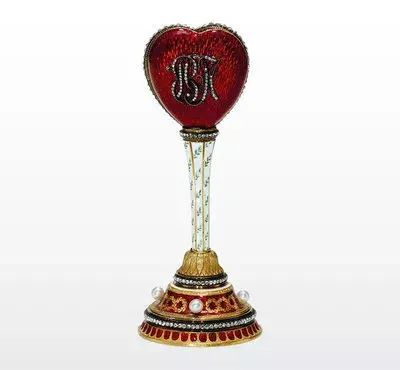
red love egg
After opening, there are three photo frames, forming a clover shape that symbolizes luck and blessing.
In Western culture, clover has the meaning of luck and blessing, and this easter egg entrusts the blessing of Tsar Nicholas II to his mother.
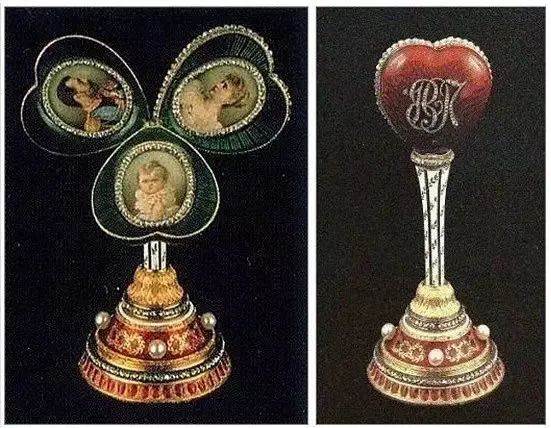
This Danish royal silver jubilee egg, completed in 1903, is made of gold, enamel, watercolor ivory, etc.
It is decorated with the iconic pattern of the Danish royal family, an elephant is embedded on the top of the egg, and the inside of the egg is a miniature head of the Danish king to ease the mother's homesickness.
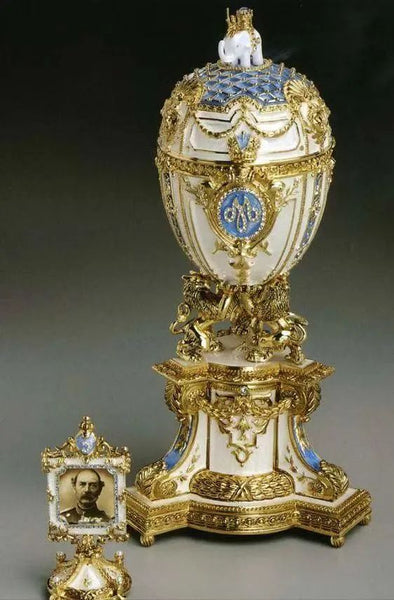
Danish Royal Jubilee Egg
Nicholas II also gave Empress Dowager Maria a commemorative egg commemorating the 300th anniversary of the Romanov Dynasty.
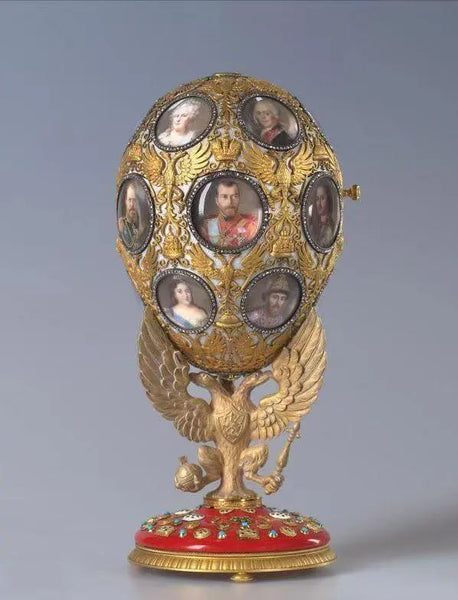
Romanov Dynasty 300th Anniversary Easter Egg
It is inlaid with more than 1,100 diamonds and portraits of successive emperors. There is a globe inside the egg, which is very commemorative.
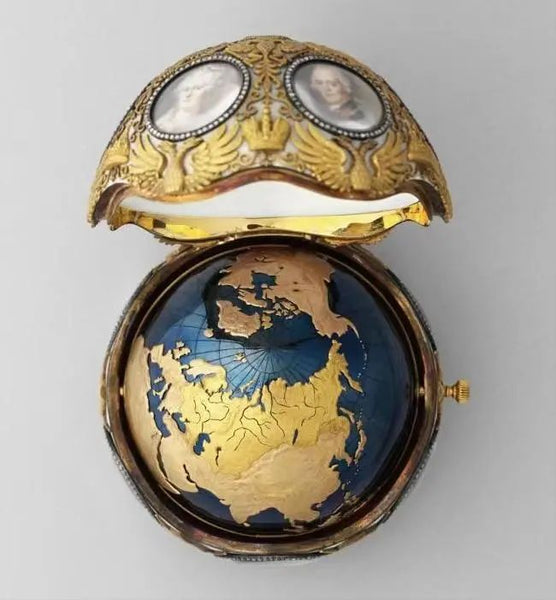
Romanov Dynasty 300th Anniversary Easter Egg
Bereaved in old age and died alone
For Maria, Nicholas II is a filial son, but for the people of Russia, Nicholas II is no different from a mediocre monarch.
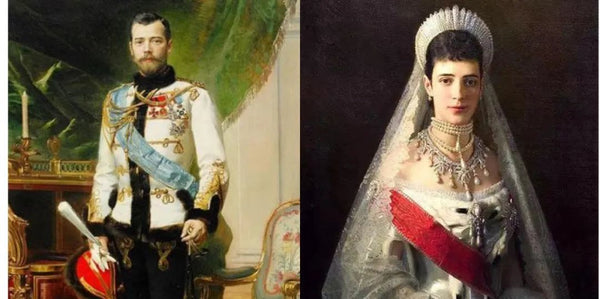
Nicholas II and Maria
During the reign of Nicholas II, when Russia entered imperialism from capitalism, class contradictions were sharp, and the tsarist system had become quite decadent.
However, Nicholas II still continued the ruling methods of his father Alexander III, which led to a widening gap between the rich and the poor in the country and intensified social conflicts.
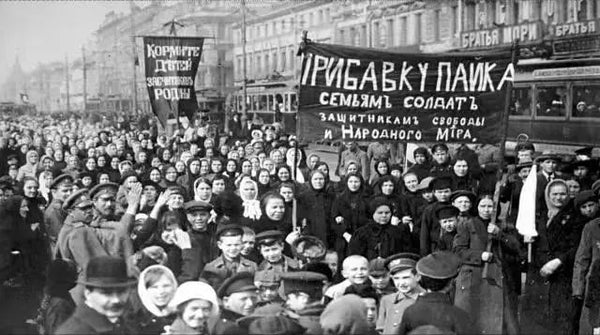
Russian February Revolution parade
In 1914, the First World War broke out, and the Russian revolutionary movement intensified. There were many scandals inside and outside the court, and the people rioted.
In March 1917, the February Revolution broke out, Nicholas II was forced to abdicate, and the Romanov dynasty, which had ruled Russia for nearly 300 years, came to an end.
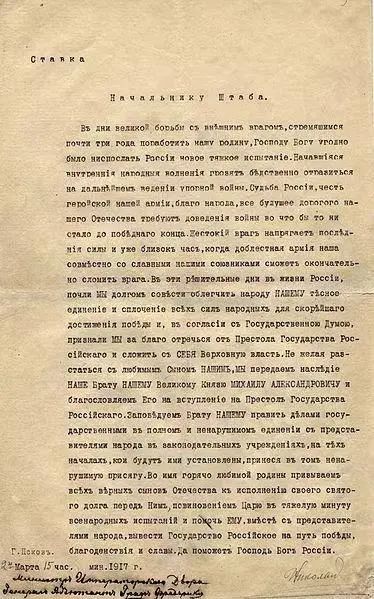
Nicholas II's abdication
And Maria, under the arrangement of her sister Alexandra, came to live in a royal residence in Crimea. Later, she moved to England.
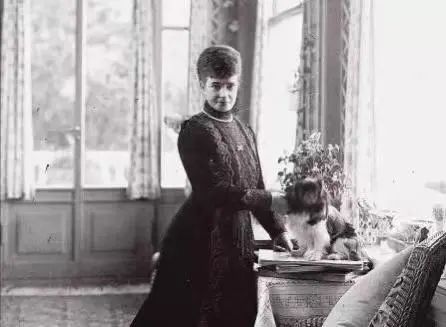
Empress Dowager Maria
Not long after, the news of the death of Nicholas II's family reached Maria's ears, but Maria was still unwilling to believe it.
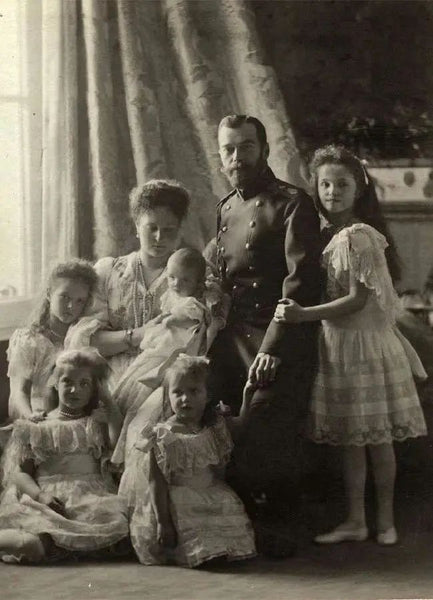
Nicholas II's family
In June 1918, Maria's youngest son, Grand Duke Michael Alexandrovich, died of illness. Maria was instantly overwhelmed and depressed all day long.
Later, Maria decided to return to Denmark to spend the rest of her life. In 1928, the Queen Mother Maria died at the age of 81.
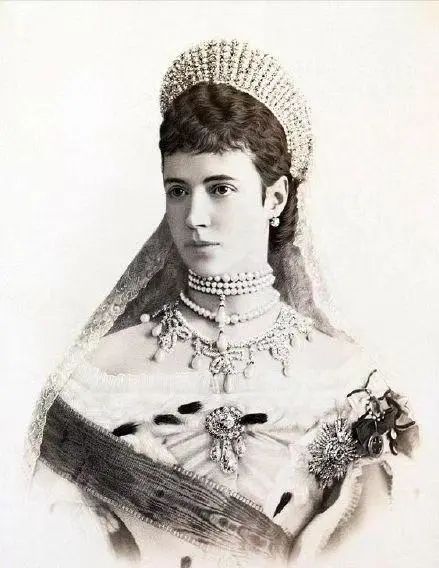
Empress Dowager Maria
From the princess of the fairy tale kingdom, to the last empress dowager of Russia, to the only survivor of the disaster, she has witnessed the prosperity and fall of Russia.
Although Maria has passed away, the jeweled eggs she left behind firmly remember the warmth behind this history, and also witnessed the touching love between her and Alexander III.
This article was first published in https://dissoojewelry.com/.
Want to know more about jewelry,click https://dissoojewelry.com/blogs/dissoo-blog to learn more.
